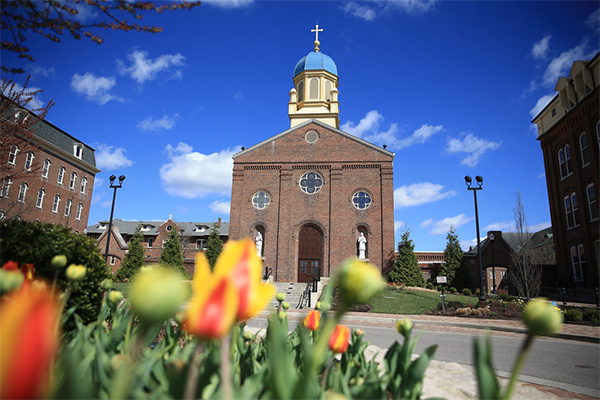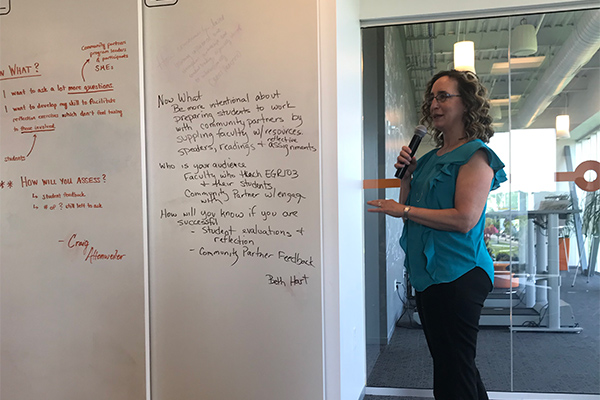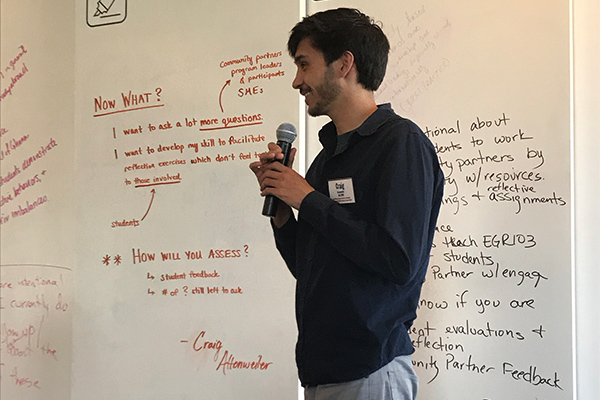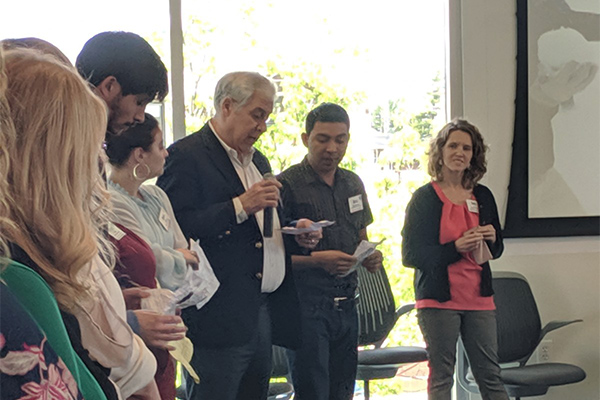Dayton Engineer

University of Dayton hosts first Midwest Summer Institute on Ethical Community-University Partnerships
By Midwest Summer Institute Team
The University of Dayton Midwest Summer Institute on Ethical Community-University Partnerships was a cross-campus collaboration and shared vision in exploring ethical partnerships and best practices for community engaged learning, which made this Institute especially unique. It also created the ability to reflect the values essential to these ethical partnerships and practices and to the Marianist tradition of UD: Trusting relationships, discipleship of equals, inclusivity, collaboration and shared understanding.
The following UD centers initiated, co-developed and co-implemented the Institute:
- Campus Ministry – Center for Social Concern
- Center for International Programs
- Fitz Center for Leadership in the Community
- Human Rights Center
- School of Engineering – ETHOS Center
Experts in the field of community-based global learning: Eric Hartman and Nora Reynolds, from globalsl.org, a multi-institutional hub supporting ethical global learning and community campus partnerships, co-organized the Institute.
For three days, May 14-16, 2019, approximately 50 people gathered at Emerson’s Helix Innovation Center on the University of Dayton’s campus for the inaugural Midwest Summer Institute: Community/University Partnerships for Global Learning and Human Rights.
About a quarter of attendees hailed from area colleges/universities, local community organizations and other educational entities. The remaining participants included staff and faculty from across the various units of UD. Participants represented many different experiences, responsibilities, disciplines and perspectives on student learning and community partnership outcomes – some were just beginning their journey to incorporate community-based global learning, some were interested in deepening their work, and others sought connections and amplification to expand critical reflection and ethical practices.
This Institute was designed to provide a thought and dialogue provoking space for examining our practices of community/university partnerships, aligning our partnership practice ethics with student learning and community outcomes, intersecting our missions with our work, and generating ideas and steps towards implementation.
With experts in the field, community partners actively participating, and a multitude of experience and perspectives from faculty and staff participants, the collective provided new connections, insights and ideas for integrating human rights, the United Nations Sustainable Development Goals (SDG’s), and community-based global learning for institutions of higher education.
The Institute had several highlights:
- Presentations and discussion led by Eric Hartman and Nora Reynolds from Haverford College and globalsl.org.
- Discussions on how to use the UN Sustainable Development Goals as a framework for community engagement, both locally and globally.
- Small group visits to various Dayton community partners, including the Food Bank, Daybreak, and Catholic Social Services Refugee Resettlement Program, as well as international partners (Grupo Fenix in Nicaragua and Engineerings in Action in Ecuador) who connected via video conferencing.
- Panel on connecting this work to the SDG’s at UD featuring Ben McCall, Hanley Sustainability Institute; Hunter Goodman, Fitz Center for Leadership in Community; Shelley Inglis, Human Rights Center; Amy Anderson, Center for International Programs & Associate Provost, Global and Intercultural Affairs; Nick Cardilino, Center for Social Concern; and John Mittelstaedt, Dean, School of Business Administration.
- Plenary by Dr. Lawrence Burnley, VP for Diversity and Inclusion, about the importance of perspective.
The Institute ended with each participant sharing an action plan for enhancing current curriculum, developing new curriculum, and/or designing new program components to realize ethical community/university partnerships.
Many of the action plans focused on improving student learning outcomes and assessing the impact of programs on the community partners. Others expressed the desire to institutionalize practices and build initiatives that directly supported the mission of the institution, organization, department or center.
Participant evaluations were overwhelmingly positive and provided valuable feedback. We are looking forward to continued discussions around the work of ethical community engagement for global learning and human rights.



